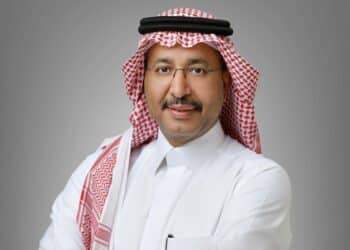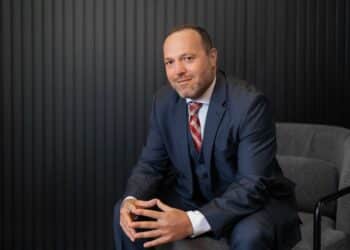 The Waste Lab, founded by the passionate duo Lara Hussein and Ceylan Uren, is not just an enterprise—it’s a crusade against food waste, driven by a mission to transform what was once considered waste into a precious resource. Lara and Ceylan, who care about sustainable practices, identified a critical gap in the market: the vast amounts of food waste generated by the hospitality sector. With this in mind, they launched The Waste Lab to challenge and change the traditional narrative around food scraps.
The Waste Lab, founded by the passionate duo Lara Hussein and Ceylan Uren, is not just an enterprise—it’s a crusade against food waste, driven by a mission to transform what was once considered waste into a precious resource. Lara and Ceylan, who care about sustainable practices, identified a critical gap in the market: the vast amounts of food waste generated by the hospitality sector. With this in mind, they launched The Waste Lab to challenge and change the traditional narrative around food scraps.

The Waste Lab operates on a simple yet profound premise: every food scrap holds potential. As a women-owned, impact-driven start-up, it targets the heart of urban waste issues by providing innovative solutions tailored to the needs of individual businesses and the wider community.
Their mission is to empower every restaurant, hotel, and cafe to turn their organic waste into an opportunity. Educating and equipping these establishments with the tools and knowledge needed for effective waste sorting at the source, The Waste Lab ensures that food scraps are not merely discarded but used to create nutrient-rich compost.

Under Lara and Ceylan’s leadership, The Waste Lab has become more than just a waste management company. It is a movement promoting a sustainable cycle that benefits soil, farms, and tables across Dubai. Their vision extends beyond waste reduction, aiming to foster a community that embraces eco-friendly practices as a norm, not an exception.
By offering practical, customised solutions that reward green behaviour, The Waste Lab is making sustainability accessible and advantageous for businesses. Their efforts help significantly reduce the ecological footprint of participating entities, support local agriculture, and contribute to a greener economy.
The results of their endeavours are palpable. Restaurants and hotels that partner with The Waste Lab are not only witnessing a decrease in waste management costs but are also playing a pivotal role in a larger environmental initiative. The compost produced from their organic waste supports local farms, which in turn supply fresh, organic produce back to the hospitality industry, creating a full-circle sustainable ecosystem.
Moreover, The Waste Lab’s influence extends to creating local jobs in green technologies and waste management, providing new opportunities in an emerging sector.
For hospitality professionals, The Waste Lab’s message is clear: sustainability is not just about conservation but innovation. Lara and Ceylan’s work is a testament to the possibilities that emerge when we rethink our approach to what constitutes waste. As the hospitality industry grows, especially in regions like Dubai, integrating practices like those pioneered by The Waste Lab could define the new standard of operational excellence and environmental stewardship.
As more establishments join this eco-friendly brigade, the hope is that this ripple will become a tidal wave of change, making sustainability a hallmark of the industry’s future. Lara and Ceylan continue to push the boundaries, proving that with innovation and commitment, even the humblest scraps can be turned into the seeds of a greener tomorrow.

The problem
The Waste Lab aims to address the high rates of food waste in the UAE. A significant portion of imported food ends up in landfills, causing environmental degradation, economic loss, and health issues. The Waste Lab focuses on transforming food scraps into compost, thus diverting waste from landfills and contributing to soil health and regenerative agriculture.
The call to act
Lara Hussein and Ceylan Üren were inspired by the realisation that food waste is not just “trash” but a resource rich in nutrients and life. They were driven to change the perception of organic waste and utilise it to regenerate soil health, support regenerative farming, enhance food security, and combat climate change.
The reality
In the UAE, per capita food waste is among the highest globally, with 1.8kg per capita per day. This waste largely ends up in landfills, constituting 55% biogenous material. The country’s dependence on imported food, with 90% of consumed food being imported, compounds the environmental impact.
| The process |
| Food waste segregation training at the source. |
| Providing segregation bins separating compostable materials (food scraps, food leftovers, compostable cutlery, and coffee grounds). |
| Collecting the segregated food waste from designated collection points of the related premises. |
| Transporting the food waste to The Waste Lab’s control station for further sorting and performing a quality check to remove contaminants, collecting data and providing feedback to the client. |
| Transferring the organic material to The Waste Lab farmland for nature-based composting. |
| Providing impact reporting and insights to the client on a regular basis to reduce food loss and waste from the source. |
| Giving back a compost share to the client for community engagement activities, growing urban gardens, and building awareness across its stakeholders. |
The impact
In 2023, The Waste Lab collected approximately half a million kilograms of food waste, marking an 833% increase from the previous year. They worked with partners like Dubai Municipality, Expo City Dubai, Dubai World Trade Centre, COP28, Hilton, and Accor Hotels to enhance their food waste management processes and create high-quality compost used by local communities and farms.
 Measuring the impact
Measuring the impact
The impact is measured through a digital dashboard for real-time data and impact reporting. Metrics include:
- Food waste collection data
- Compost production
- Climate-related indicators like landfill diversion and CO2 and methane emissions reductions
Raising awareness
The Waste Lab focuses on education and awareness, conducting workshops for various audiences, including schools and corporations. They partner with entities like Dubai Municipality to deliver workshops and build awareness about food waste management and composting.
Challenges
Challenges include changing organisations’ mindsets about the importance of adopting a sustainable food waste management system that is nature-based and impact-driven. The Waste Lab addresses these through training, storytelling, transparency through data tracking, impact reporting and feedback, process optimisation, and engagement with local authorities.
Partnerships
The Waste Lab has partnered with Dubai Municipality, Expo City Dubai, DWTC, Hilton, COP28, Hilton Hotels, Accor Hotels, VOX Cinemas, and Coffee Planet. These partnerships have been instrumental in expanding its reach and validating its nature-based food waste management solutions.
The Aim
Based in Dubai, The Waste Lab plans to expand operations across the Emirates, starting with Abu Dhabi and Sharjah. It aims to tailor compost for specific crops, collaborate with local farms, and use their farmland for testing and education. The company recently opened a seed investment round to support expansion, purchase equipment to increase efficiency and production, grow its team, and develop an app for process automation and impact tracking.
A message about food wastage
Every piece of food wasted has a more significant impact than we realise—it’s not just about the loss of food but also about environmental damage, resource squandering, and the missed opportunity to support our local ecosystem. We must take action to reduce our food waste footprint and adopt sustainable and regenerative practices to ensure a better future for our country and the planet.
| Goals
· Divert food scraps and leftovers from landfills by collaborating with businesses (including hotels, restaurants, and food producers), events (such as Dubai World Trade Centre (DWTC) and Expo City Dubai), and communities. · Produce compost from the collected food scraps and leftovers at the farm, currently located in Al Faqa’, using nature-based composting methods. · Collaborate with local farms to utilise the produced compost for agricultural purposes. · Align with the UAE’s Sustainability Goals to achieve zero landfill waste by 2050. · Work in conjunction with the Ministry of Climate Change and Environment’s Ne’ma Pledge to reduce food loss and waste by 50% by 2030. · Assist in the production of organic food locally. |



































































